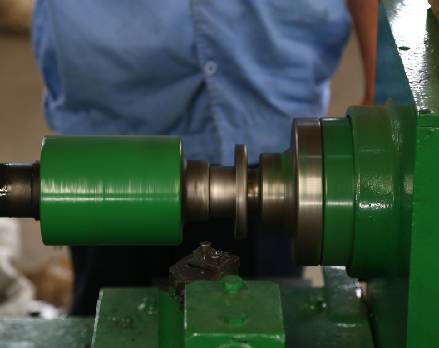 Afrikaans
Afrikaans  Albanian
Albanian  Amharic
Amharic  Arabic
Arabic  Armenian
Armenian  Azerbaijani
Azerbaijani  Basque
Basque  Belarusian
Belarusian  Bengali
Bengali  Bosnian
Bosnian  Bulgarian
Bulgarian  Catalan
Catalan  Cebuano
Cebuano  Corsican
Corsican  Croatian
Croatian  Czech
Czech  Danish
Danish  Dutch
Dutch  English
English  Esperanto
Esperanto  Estonian
Estonian  Finnish
Finnish  French
French  Frisian
Frisian  Galician
Galician  Georgian
Georgian  German
German  Greek
Greek  Gujarati
Gujarati  Haitian Creole
Haitian Creole  hausa
hausa  hawaiian
hawaiian  Hebrew
Hebrew  Hindi
Hindi  Miao
Miao  Hungarian
Hungarian  Icelandic
Icelandic  igbo
igbo  Indonesian
Indonesian  irish
irish  Italian
Italian  Japanese
Japanese  Javanese
Javanese  Kannada
Kannada  kazakh
kazakh  Khmer
Khmer  Rwandese
Rwandese  Korean
Korean  Kurdish
Kurdish  Kyrgyz
Kyrgyz  Lao
Lao  Latin
Latin  Latvian
Latvian  Lithuanian
Lithuanian  Luxembourgish
Luxembourgish  Macedonian
Macedonian  Malgashi
Malgashi  Malay
Malay  Malayalam
Malayalam  Maltese
Maltese  Maori
Maori  Marathi
Marathi  Mongolian
Mongolian  Myanmar
Myanmar  Nepali
Nepali  Norwegian
Norwegian  Norwegian
Norwegian  Occitan
Occitan  Pashto
Pashto  Persian
Persian  Polish
Polish  Portuguese
Portuguese  Punjabi
Punjabi  Romanian
Romanian  Russian
Russian  Samoan
Samoan  Scottish Gaelic
Scottish Gaelic  Serbian
Serbian  Sesotho
Sesotho  Shona
Shona  Sindhi
Sindhi  Sinhala
Sinhala  Slovak
Slovak  Slovenian
Slovenian  Somali
Somali  Spanish
Spanish  Sundanese
Sundanese  Swahili
Swahili  Swedish
Swedish  Tagalog
Tagalog  Tajik
Tajik  Tamil
Tamil  Tatar
Tatar  Telugu
Telugu  Thai
Thai  Turkish
Turkish  Turkmen
Turkmen  Ukrainian
Ukrainian  Urdu
Urdu  Uighur
Uighur  Uzbek
Uzbek  Vietnamese
Vietnamese  Welsh
Welsh  Bantu
Bantu  Yiddish
Yiddish  Yoruba
Yoruba  Zulu
Zulu Durable and Versatile Applications of Polyurethane Rollers in Industrial Settings and Machinery
Understanding Polyurethane Rollers A Comprehensive Overview
Polyurethane rollers are an essential component in various industrial applications, known for their durability, flexibility, and versatility. These rollers are made from polyurethane, a synthetic polymer that possesses unique properties making it ideal for various tasks. This article aims to explore the significance, applications, and advantages of polyurethane rollers in different industries.
What is Polyurethane?
Polyurethane is a polymer created through the reaction of polyols and isocyanates. This process results in a material that can be formulated to achieve a wide range of hardness, flexibility, and other characteristics. Polyurethane offers excellent wear resistance, impact strength, and chemical stability, making it suitable for a myriad of applications.
Importance of Polyurethane Rollers
Polyurethane rollers serve a critical function in machinery and equipment across various sectors, including manufacturing, logistics, food processing, and more. Their design helps in material handling, providing support, and enabling smooth operation of conveyor systems, printers, packaging machines, and other equipment. The unique properties of polyurethane allow these rollers to maintain performance even under demanding conditions, ensuring efficient operation across various environments.
Applications of Polyurethane Rollers
1. Manufacturing Industry In manufacturing, polyurethane rollers are commonly used in conveyor systems. They facilitate the transport of goods and materials, ensuring smooth and efficient movement within the production line. Their resilience to wear and tear means less downtime and lower maintenance costs.
2. Printing Industry The printing industry relies heavily on polyurethane rollers for ink transfer and offset printing. The rollers provide a consistent surface area for ink application, ensuring high-quality prints. Their ability to withstand chemicals further enhances their usability in this sector.
polyurethane roller

3. Food Processing In food processing and packaging, hygiene is paramount. Polyurethane rollers are often used because they can be formulated to be food-safe and easy to clean. Additionally, they resist bacterial growth, making them suitable for use in food-related applications.
4. Logistics and Transportation The logistics industry benefits from polyurethane rollers mainly in loading systems and conveyor belts. Their strength and durability support heavy loads, while their ability to absorb shocks reduces the risk of damage to goods during transit.
Advantages of Using Polyurethane Rollers
1. Durability Polyurethane rollers are highly resistant to wear, abrasion, and extreme temperatures, which contributes to their longevity. 2. Versatility They can be customized in terms of hardness and elasticity, allowing for specific use cases depending on the application.
3. Shock Absorption Their inherent flexibility allows polyurethane rollers to absorb shocks and vibrations, reducing the impact on the machinery and enhancing overall operational flow.
4. Low Maintenance Due to their resilience, these rollers require minimal maintenance, leading to cost savings in the long run.
5. Environmental Stability Polyurethane is resistant to environmental factors such as moisture, ultraviolet light, and chemicals, ensuring that the rollers perform reliably in various conditions.
Conclusion
Polyurethane rollers are indispensable in modern industrial operations, contributing significantly to efficiency, quality, and safety. Their unique properties make them suitable for a wide range of applications, from manufacturing to food processing. As industries continue to evolve, the demand for durable and versatile components like polyurethane rollers is likely to grow, ensuring they remain a crucial element of production processes in the years to come. By investing in high-quality polyurethane rollers, businesses can enhance their operational efficiency and reduce long-term costs while ensuring a smoother workflow.
-
Revolutionizing Conveyor Reliability with Advanced Rubber Lagging PulleysNewsJul.22,2025
-
Powering Precision and Durability with Expert Manufacturers of Conveyor ComponentsNewsJul.22,2025
-
Optimizing Conveyor Systems with Advanced Conveyor AccessoriesNewsJul.22,2025
-
Maximize Conveyor Efficiency with Quality Conveyor Idler PulleysNewsJul.22,2025
-
Future-Proof Your Conveyor System with High-Performance Polyurethane RollerNewsJul.22,2025
-
Driving Efficiency Forward with Quality Idlers and RollersNewsJul.22,2025





























